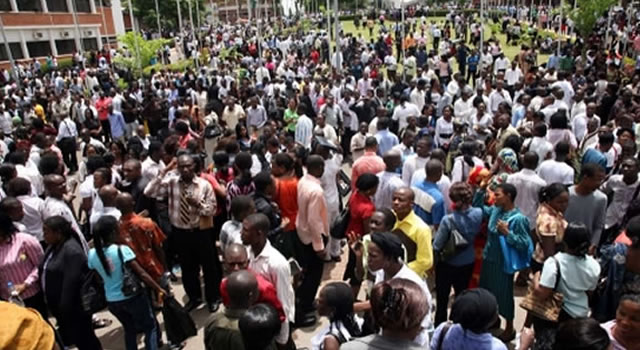Business
One in five working Nigerians lost their job in 2020 due to Covid-19

The National Bureau of Statistics (NBS) has revealed that the outbreak of COVID-19 pandemic in 2020, cost 20 percent of Nigeria’s full-time workforce their jobs.
This was revealed by the NBS in research done in collaboration with the United Nations Development Programme (UNDP) and released on Tuesday.
The research, which focused on the impact of COVID-19 on Nigerian commercial operations, interviewed over 3,000 companies from the official and informal sectors across various sectors.
According to the study, the pandemic had an impact on the nation’s workforce, causing the unemployment rate to rise from 27 percent to 33 percent between Q2 2020 and Q4 2020.
“While there have been encouraging indications of recovery this year,” the study states, “COVID-19 has had an outsized socioeconomic impact on Nigeria.”
“In order to survive, businesses resorted to laying off employees, and enterprise closures severed critical livelihood lines for households that relied on them for income, which, combined with a lack of new business opportunities and a reduction in capital investment, further limited new job prospects.
“Prior to the COVID-19 epidemic, the median full-time workforce of formal and informal companies was 12 and 5, respectively. During the epidemic, these figures fell to ten and four, respectively, for official and informal companies.
Read also: Nigeria, others could lose 3.5m aviation jobs, $35bn to COVID-19 this year —IATA
“This leads in 20 percent of the starting full-time workers losing their employment throughout this timeframe across the sample. This ratio is significantly higher 21 percent among legal businesses, compared to 15 percent among informal businesses.”
According to the research, while 58% of firms maintained employee strength, 28% lost up to 50% of their initial employment, with the remaining 14% losing more than 50% of their initial workforce.
It went on to say that informal businesses were hit the worst, accounting for 62 percent of overall employment losses.
The NBS chief, Simon Harry, stated at the report’s release that the survey results were extremely significant because they included valuable information that might assist policymakers in their efforts to minimize the negative socio-economic consequences of COVID-19 in the country.
According to Mohamed Yahya, the Nigerian UNDP Resident Representative, the report results underscore the complicated problems that the economy continues to face as a result of COVID-19.
He added that it also raises awareness about the pandemic’s impact on the Nigerian business environment, including its impact on production, sales, revenues, and the labor force, with far more granular details than were previously available and providing critical insight into where interventions should be targeted.
Join the conversation
Support Ripples Nigeria, hold up solutions journalism
Balanced, fearless journalism driven by data comes at huge financial costs.
As a media platform, we hold leadership accountable and will not trade the right to press freedom and free speech for a piece of cake.
If you like what we do, and are ready to uphold solutions journalism, kindly donate to the Ripples Nigeria cause.
Your support would help to ensure that citizens and institutions continue to have free access to credible and reliable information for societal development.
























